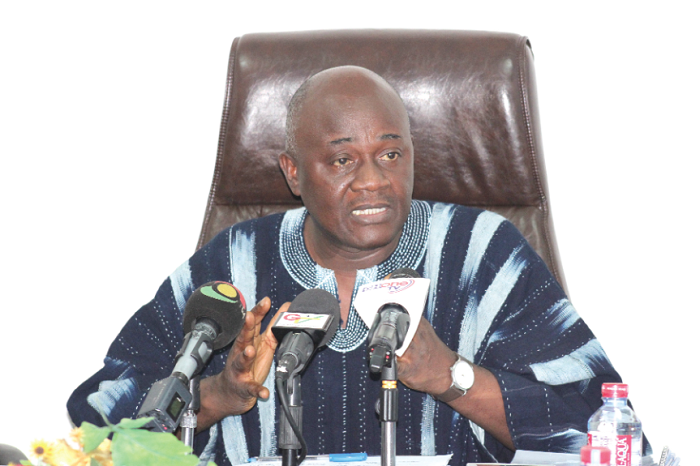
Let's put limit to regions, districts — Dr Osae
Ghana must amend the 1992 Constitution to put a limit to the number of regions and districts in the country in order not to compromise development, the Dean of Graduate Studies at the Institute of Local Government Studies, Dr Eric Oduro Osae, has stated.
He said the current constitutional provision which allowed for new creations as society reached different thresholds could prove counterproductive in the long run as it held the potential of undermining long-term planning efforts.
He said the current arrangement allowed politicians the freedom to exploit and tamper with the system as and when they deemed fit.
Audit committees of MDAs
Speaking to journalists in Wa on the sidelines of an orientation workshop for members of the newly established Audit Committees of Municipal and District Assemblies (MDAs) in the Upper West Region, Dr Osae said the current arrangement could prove problematic in future.
The Audit Committees have come to replace the Audit Implementation Committee after the passage of the Public Financial Management Act 2016 (Act 921) scrapped the previous body.
The workshop was organised by the Centre for Local Governance Advocacy, in collaboration with the Internal Audit Agency, to expose members of the new Audit Committee to the operations of the Metropolitan, Municipal and District Assemblies (MMDAs) and the new requirements of Act 921.
Dr Osae, who is also a technical advisor to the Minister of Local Government and Rural Development, said the uncertainty about how many regions or districts Ghana could have should “tell us that we can't plan as a nation because we should be able to know that if we need 200 district assemblies to develop, it is in the constitution. After that, we don't create new ones again.”
Read also: Businesses to integrate into GhanaPostGPS
Rearrange and divide
He stressed that should the need arise later to tamper with the prevailing system, “all what we do is to rearrange and divide. When we do that, it helps us to know the area of jurisdiction and how we can plan for development.
“But as it stands now, there is no provision in the Constitution that puts a cap on the number of district assemblies we can have. So every now and then we are creating new districts, and if you create new districts you have to resource them. It prevents development.
“In fact, if you have a district assembly and it has planned that by the next four years, it is going to develop its area of jurisdiction, then all of a sudden creation comes in and they cut a portion off it, you put that particular development agenda of the district assembly in jeopardy and it's not good.
“So if we want to make sure that this thing works and development is well-coordinated, let us put a cap in the Constitution as to the maximum number of regions, (and) maximum number of districts then we can better plan,” he added.
Read also: Disgruntled NPP sympathisers threatens demo
Rights of assemblies
Speaking on the rights and obligations of district assemblies, he said presently, it was wrong for the central government to award contracts below the accepted threshold.
“Under the principle of subsidiarity, contracts are supposed to be awarded by the local government so far as it is within their threshold. But in most cases, we see that these contracts may be awarded from Accra or from the region. Local government has no control. You ask the chief executive and he will tell you that I don't even know the contractor.
“When it happens like that, it makes supervision very difficult. A contractor can do shoddy work. What we are saying is that contracts should not be awarded from Accra when the local government has the capacity to award the contract. They should allow them to award the contract so that they can monitor and ensure that we get value for money.
“It is wrong for a contract to be awarded from Accra when the local government is not aware, especially when the local government has been made the highest political administrative authority in the district.
“It also undermines their authority because such a contractor thinks that he reports to somebody in Accra and not to the chief executive of the district. It makes the work of technical officers difficult. You cannot get a district engineer to go and give instructions to a contractor to correct something he did which is not good, because they didn't award the contract,” he noted.
Dr Osae said it was important for district chief executives (DCEs) to hold themselves as true chief executives to resonate with the corporate environment to rub off on their work as managers of the districts.
